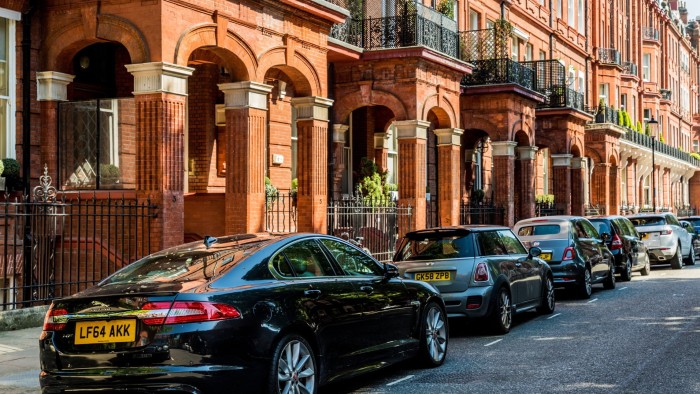Unlock the Editor’s Digest for free
Roula Khalaf, Editor of the FT, selects her favourite stories in this weekly newsletter.
The Somerset town of Bruton has a number of wealthy homeowners, including the former chancellor George Osborne, who in 2015 took the first steps towards abolishing Britain’s non-domiciled tax regime for foreign residents. Until recently, it was also home to Iwan and Manuela Wirth, Swiss co-founders of Hauser & Wirth, the global contemporary art gallery.
The Wirths have relocated to Switzerland, having been officially resident in the UK since 2016. They had family and professional reasons and were not non-doms, a status that was finally abolished by the government in April. But all wealthy foreign residents now face a 10-year deadline after which their global assets are liable to UK inheritance tax of up to 40 per cent.
They are among many in this group who are leaving the UK, some alienated by rapid changes in a tax regime meant to lure them. “I looked at the 10 reasons I was given for coming and they’d all changed, so I decided to go,” one reports having been told by another. Departures include Lakshmi Mittal, the steel billionaire, and Nassef Sawiris, Egypt’s richest man.
The full impact will not be known for a year or two, as tax returns reveal how many of the 74,000 non-doms have left, and tax advisers and financial lobby groups have reason to exaggerate. But there is a growing risk of the Treasury not only failing to gain an estimated £33.8bn in taxes over five years, but losing revenues if more than a quarter of those affected leave.
It is plain that UK chancellors were lulled into a false sense of security by the fact that Osborne’s initial abolition of permanent non-dom status did not provoke much flight. Jeremy Hunt followed in 2024 by limiting to four years the full fiscal benefit of foreign residency and Rachel Reeves added 10-year inheritance tax liability. Big mistake.
The latter is scaring away many foreign residents whose estates would be lower taxed elsewhere. Italy has attracted many former UK non-doms with an offer of being able to shelter overseas assets for 15 years in return for an annual payment of €200,000. It also has an inheritance tax rate starting at only 4 per cent of an estate.
The 200-year-old non-dom regime was arbitrary and indefensible. But the rapid transition to a regime that fails Reeves’ claim of being “internationally competitive” has proved very unnerving. It does not really help that Nigel Farage, Reform’s leader, has promised a 10-year offshore tax shelter for a one-off payment of £250,000. Who could depend on any of this?
Consider why the UK needs a special regime for foreign residents. The US has global taxation for all, despite Donald Trump’s offer of a $5mn “Trump Card” route to citizenship. But US taxation is generally lower (it has a much higher estate tax threshold) and the economic opportunity is greater. The UK must compete, along with others.
There is a straightforward tax incentive to host wealthy foreigners: the UK received £6.2bn in taxes from non-doms in the 2022-23 tax year, despite the fact overseas income and assets were mostly sheltered. By definition, they can pick where to settle, while the UK depends on its high earners, given that 29 per cent of all income tax is paid by the top 1 per cent.
The UK also gains wider economic benefits from foreign talent: the Wirths’ presence in London and Somerset has been vital to the UK’s contemporary arts industry. This works at a less visible level: if a private equity fund tries to recruit a senior executive to London, the latter will now think harder about whether it is worth coming.
The UK has attractions, of course, from language to a stable legal system and good schools and universities. But other places have made themselves more alluring and it has been pushing its luck since Brexit. Reeves has been considering changes amid intense fiscal pressure as the scale of flight by non-doms has emerged.
Labour should go further. The four-year period the UK offers for foreign residents to shelter overseas income and assets from tax is intuitively too short: it is uncompetitive with other countries and does not give a family time to settle and put children in school before leaving again. The point of a foreign resident scheme is to entice people not only to come but to remain.
I would lengthen it and make the offer simpler, a quality that is now sorely lacking. Allow foreign residents a decade of paying UK-based taxes for an annual fee of at least £200,000 (not a Farage Card). Then make them integrate fully, keeping only offshore assets in trust for inheritance tax purposes. This might not please Labour MPs but it would benefit the country.




